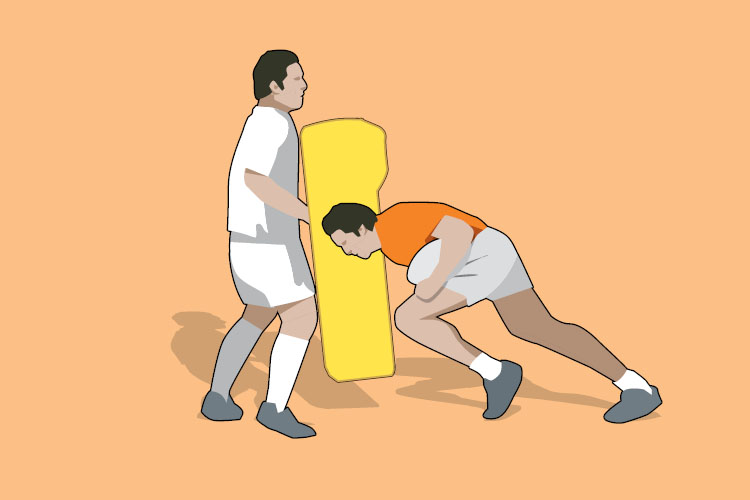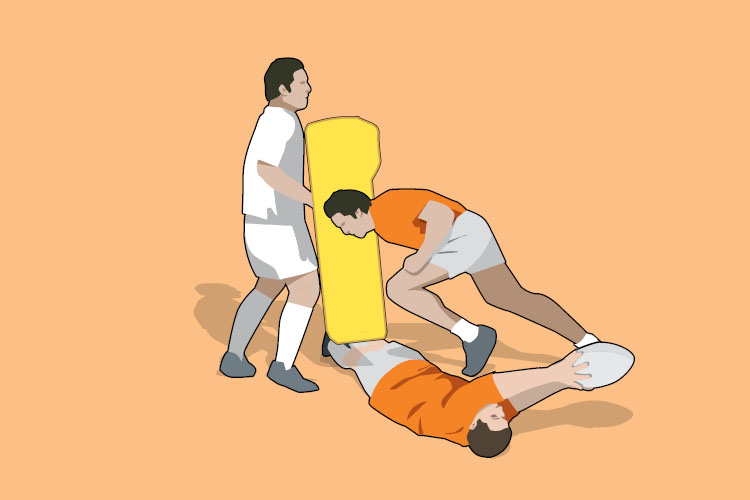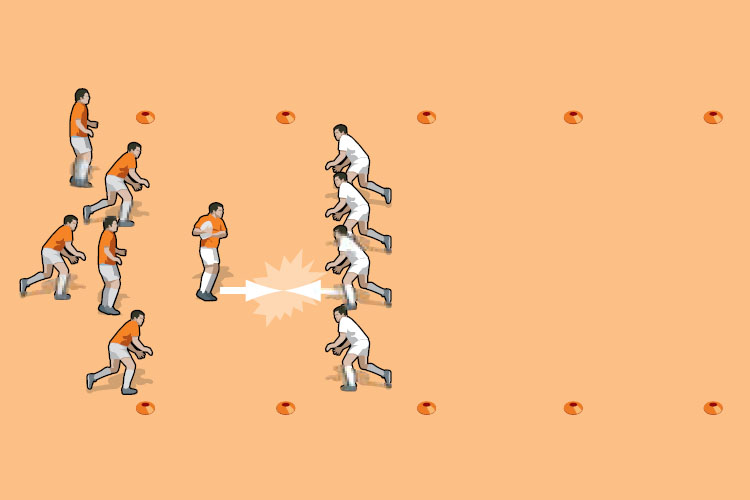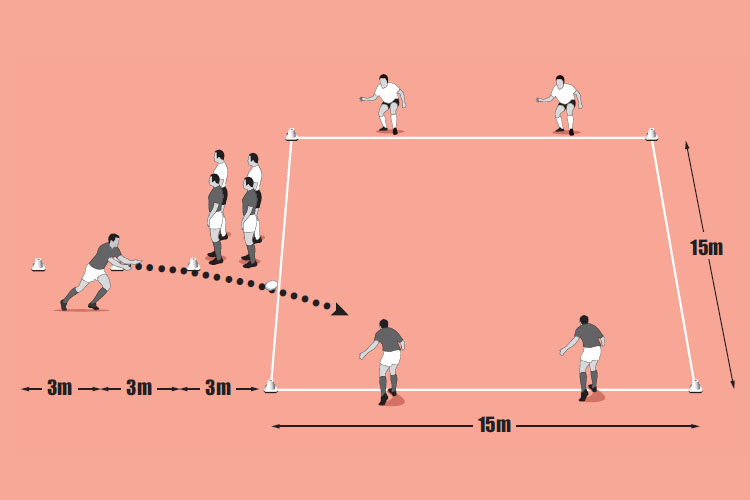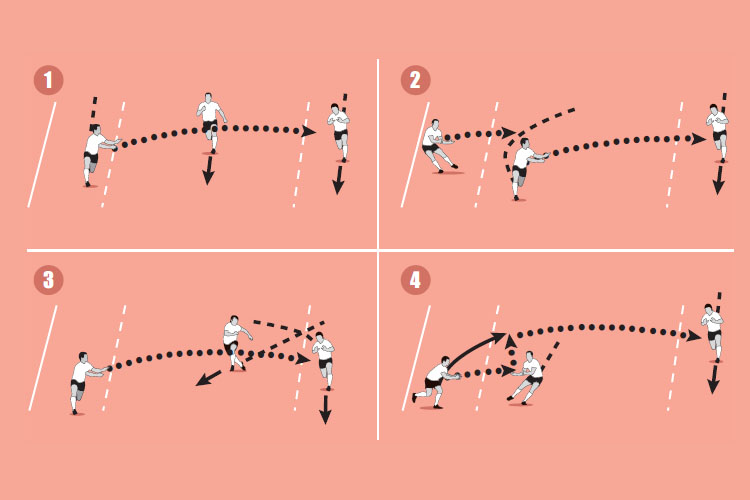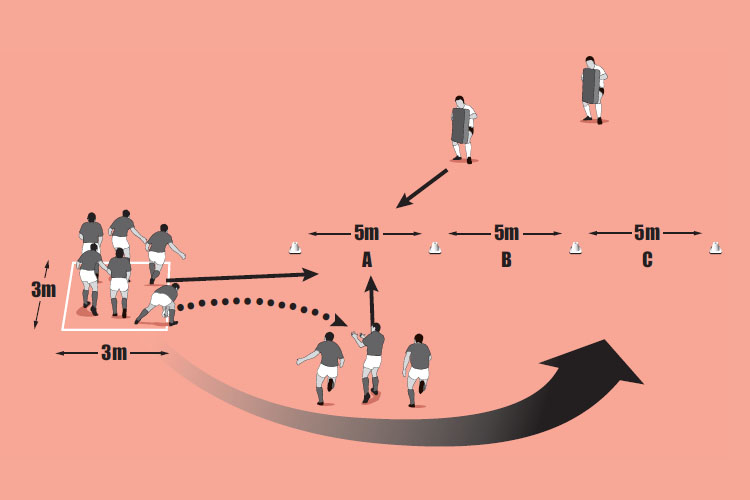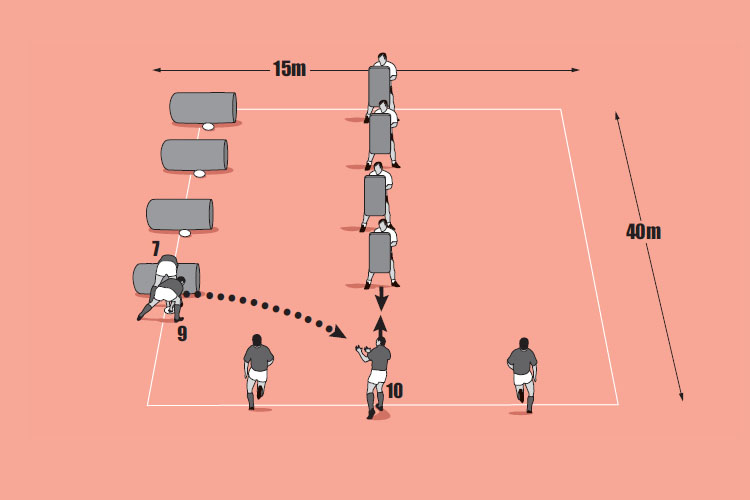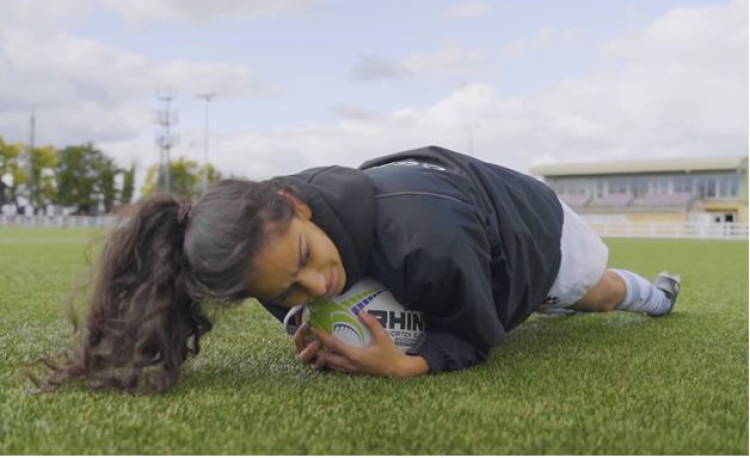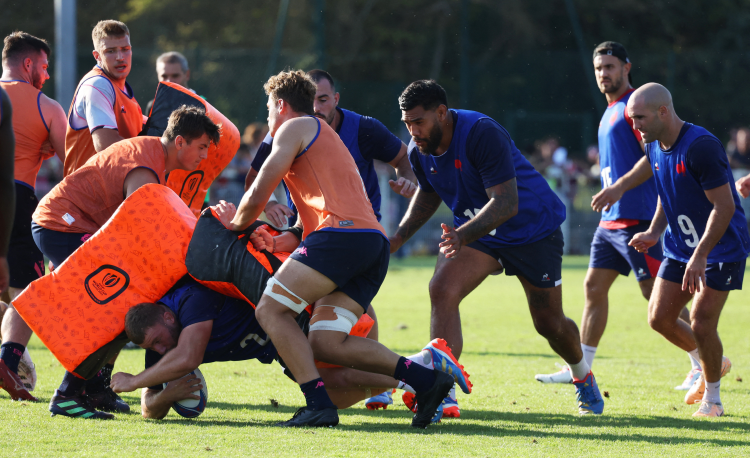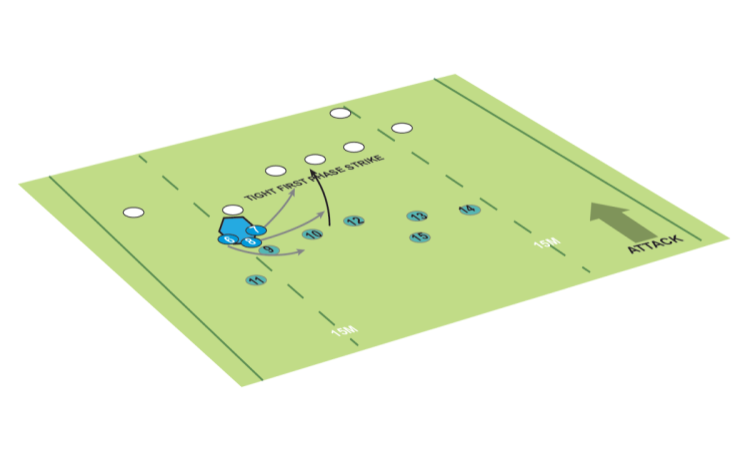Staying alive
“Staying alive” means keeping some forward momentum through the contact area. So rather than meekly going to ground when faced with a defender, the ball carrier fights to stay on their feet. This provides a better target for the support players and improves your team’s recycling of the ball.
Warm up time: 5-7
Session time: 10-15
Development time: 7-10
Game time: 15-20
Warm down time: 5-7
What to think about
- My team find it very hard to win quick possession from rucks. We always seem to have numbers there, but still the ball is slow getting to the scrum half.Winning quick ruck ball has nothing to do with how many players you commit to the ruck. One effective rucking player will give you quicker possession than four ineffective players. Some players see rucks as an opportunity to rest. They will lean on and look like they are doing something when actually they are just getting in the scrum half’s way. Players should not get involved in rucks unless they think they will make a difference. They need to hit rucks with purpose rather than just lean and push.
set-up
- Stay on your feet in contact and drive forwards.
- Get to ground quickly when support arrives.
- Present the ball as far back as you can towards your team mates.
What you get your players to do
Using defenders holding ruck pads, practice taking the ball into contact.- The ball carrier hits the pad in a good strong position and drives forward, protecting the ball. He then drives on until the pad holder shouts “DOWN”. The ball carrier has to fall, protecting the ball, and present it back towards his team.
- Once this exercise has been perfected, add a support player. He tells the ball carrier when to go down and then stays in a strong position over the ball to protect it.
Development
Make the exercise live. The ball carrier starts one metre from the defender (now without a pad) and has to drive into him, all the time trying to stay up. When the support player arrives the ball carrier has to fight to get to ground and present the ball.Related Files
Game situation
There are two different overload games you can play to develop effective recycling.- Six attackers v four defenders.
- Five attackers v eight defenders.Both games are full contact, so all the tackle and ruck laws apply. The attacking team have to keep possession for as many phases as they can while the defenders try to turnover the ball before scoring. When there are more attackers, insist on quick ball at every ruck.
What to call out
- “Keep your head up as you drive”
- “Grab hold of the pad holder to keep you up”
- “Support player: watch your feet near the ball”
Newsletter Sign Up
Coaches Testimonials

Gerald Kearney, Downtown Las Vegas Soccer Club

Paul Butler, Florida, USA

Rick Shields, Springboro, USA

Tony Green, Pierrefonds Titans, Quebec, Canada
Subscribe Today
Be a more effective, more successful rugby coach
In a recent survey 89% of subscribers said Rugby Coach Weekly makes them more confident, 91% said Rugby Coach Weekly makes them a more effective coach and 93% said Rugby Coach Weekly makes them more inspired.
Get Weekly Inspiration
All the latest techniques and approaches
Rugby Coach Weekly offers proven and easy to use rugby drills, coaching sessions, practice plans, small-sided games, warm-ups, training tips and advice.
We've been at the cutting edge of rugby coaching since we launched in 2005, creating resources for the grassroots youth coach, following best practice from around the world and insights from the professional game.
